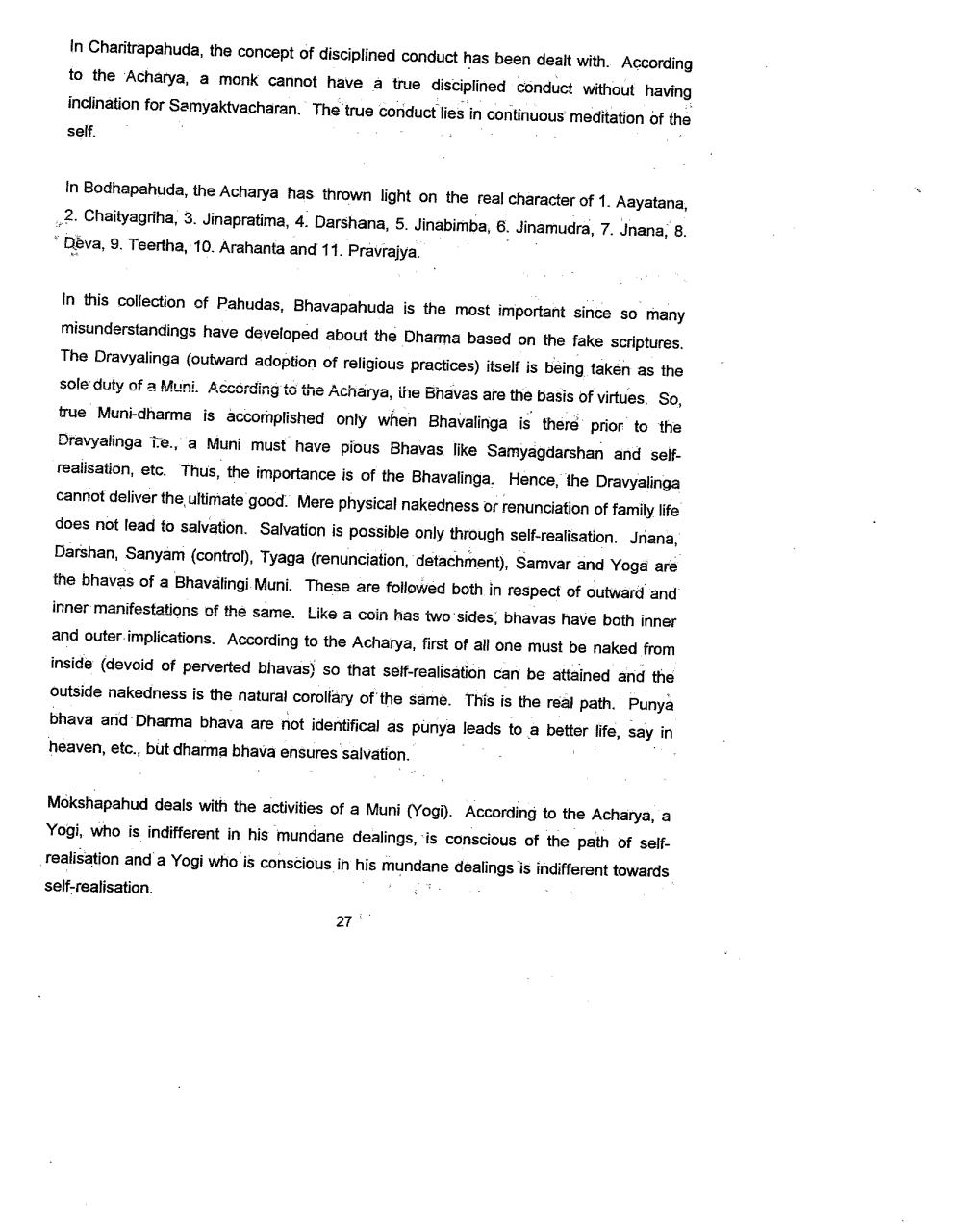________________
In Charitrapahuda, the concept of disciplined conduct has been dealt with. According to the Acharya, a monk cannot have a true disciplined conduct without having inclination for Samyaktvacharan. The true conduct lies in continuous meditation of the self.
In Bodhapahuda, the Acharya has thrown light on the real character of 1. Aayatana, 2. Chaityagriha, 3. Jinapratima, 4. Darshana, 5. Jinabimba, 6. Jinamudra, 7. Jnana, 8. * Déva, 9. Teertha, 10. Arahanta and 11. Pravrajya.
In this collection of Pahudas, Bhavapahuda is the most important since so many misunderstandings have developed about the Dharma based on the fake scriptures. The Dravyalinga (outward adoption of religious practices) itself is being taken as the sole duty of a Muni. According to the Acharya, the Bhavas are the basis of virtues. So, true Muni-dharma is accomplished only when Bhavalinga is there prior to the Dravyalinga t.e., a Muni must have pious Bhavas like Samyagdarshan and selfrealisation, etc. Thus, the importance is of the Bhavalinga. Hence, the Dravyalinga cannot deliver the ultimate good. Mere physical nakedness or renunciation of family life does not lead to salvation. Salvation is possible only through self-realisation. Jnana, Darshan, Sanyam (control). Tyaga (renunciation, detachment), Samvar and Yoga are the bhavas of a Bhavalingi. Muni. These are followed both in respect of outward and inner manifestations of the same. Like a coin has two sides, bhavas have both inner and outer implications. According to the Acharya, first of all one must be naked from inside (devoid of perverted bhavas) so that self-realisation can be attained and the outside nakedness is the natural corollary of the same. This is the real path. Punya bhava and Dharma bhava are not identifical as punya leads to a better life, say in heaven, etc., but dharma bhava ensures salvation.
Mokshapahud deals with the activities of a Muni (Yogi). According to the Acharya, a Yogi, who is indifferent in his mundane dealings, is conscious of the path of selfrealisation and a Yogi who is conscious in his mundane dealings is indifferent towards self-realisation.
27




